By Program
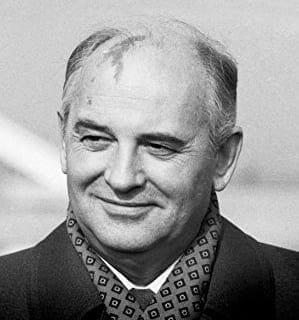
Gorbachev: His Life and Times
April 18, 2018 | 12:15:00 | LBJ School of Public Affairs, SRH 3.122

On Wednesday, April 18, 2018, the Strauss Center welcomed Dr. William Taubman to give a talk on his latest book Gorbachev: His Life and Times. The event was co-sponsored by UT’s Center for Russian, East European and Eurasian Studies and Department of Government.
Photos of the event can be found here. A video of the event is available here.
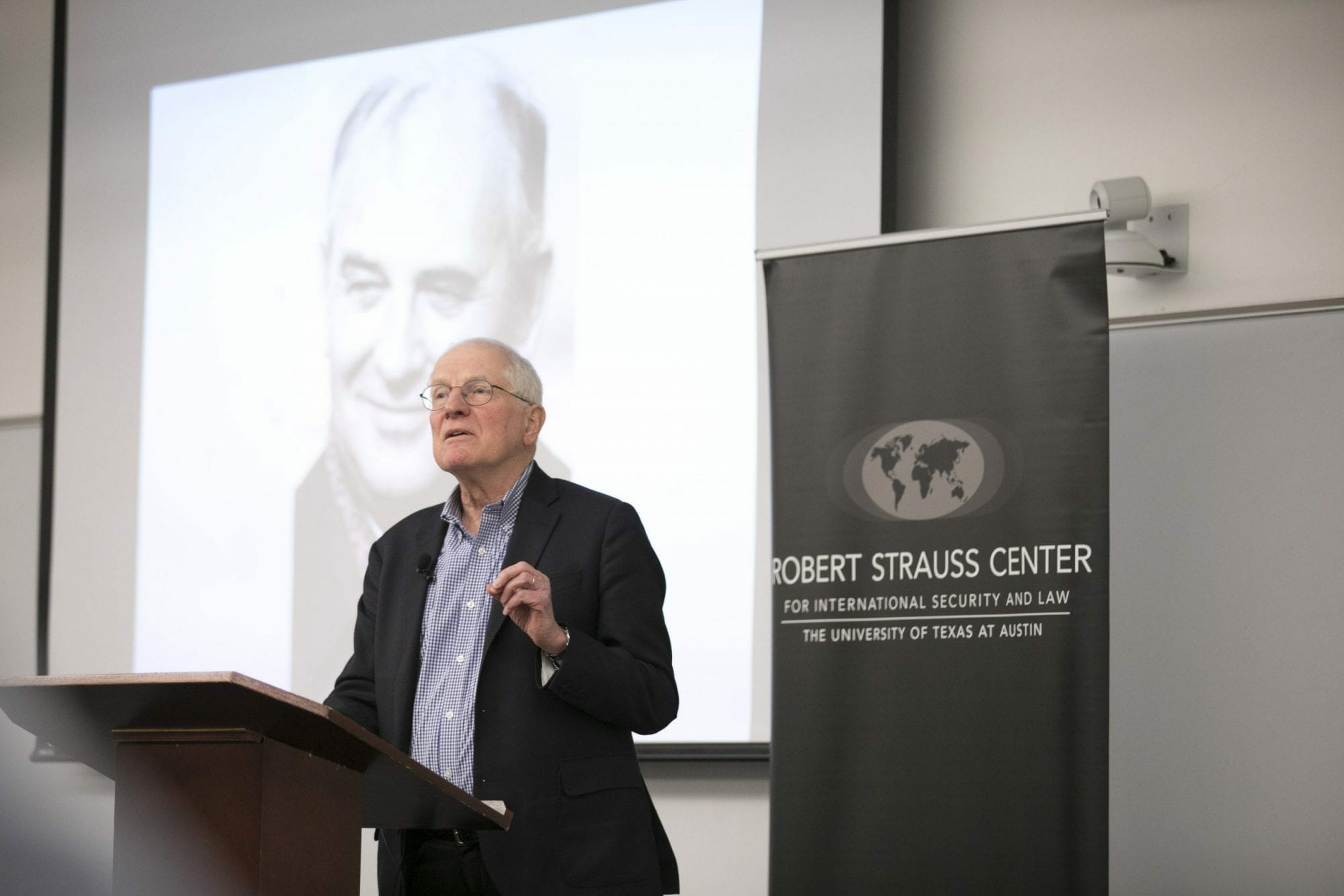
Dr. William Taubman’s newest biography, Gorbachev: His Life and Times, portrays the last Soviet leader as a tragic hero, trying to save the Soviet Union while inadvertently contributing to its collapse. To arrive at this final assessment, Dr. Taubman addressed five major questions:
- How did Gorbachev become Gorbachev?
- How did the regime pick Gorbachev to become their leader, and why did they pick him?
- Where did his dream of democratizing the Soviet Union come from, and why did it fail?
- How did Gorbachev and Reagan become almost perfect partners in ending the Cold War?
- Why did Gorbachev let the Eastern Empire of the Soviet Union fall?
To begin, Taubman elaborated on two aspects of Gorbachev’s character as a leader: his power and his uniqueness. Though the USSR was crumbling, Gorbachev still had more power than any democratically elected leader in the world. While all leaders have some sort of power, Gorbachev acted differently, uniquely, in very significant ways. Gorbachev: His Life and Times discerns how his distinctive character impacted history.

Gorbachev grew up in terrible times – famine plagued the country, collectivization swept across rural areas, Nazis occupied his village, and then in the last years of Stalinism, when things were supposed to get better, conditions only harshened. However, Gorbachev emerged from his childhood circumstance filled with confidence and trust in his fellow men and women, a trust few others held as the regime encouraged doubt and skepticism. These traits were crucial to who he would become and what he would do. According to Dr. Taubman, Gorbachev’s confidence and optimism came from his father and grandfather. When asked about his childhood, Gorbachev told Dr. Taubman, we were terribly poor, almost beggars, but I felt wonderful.
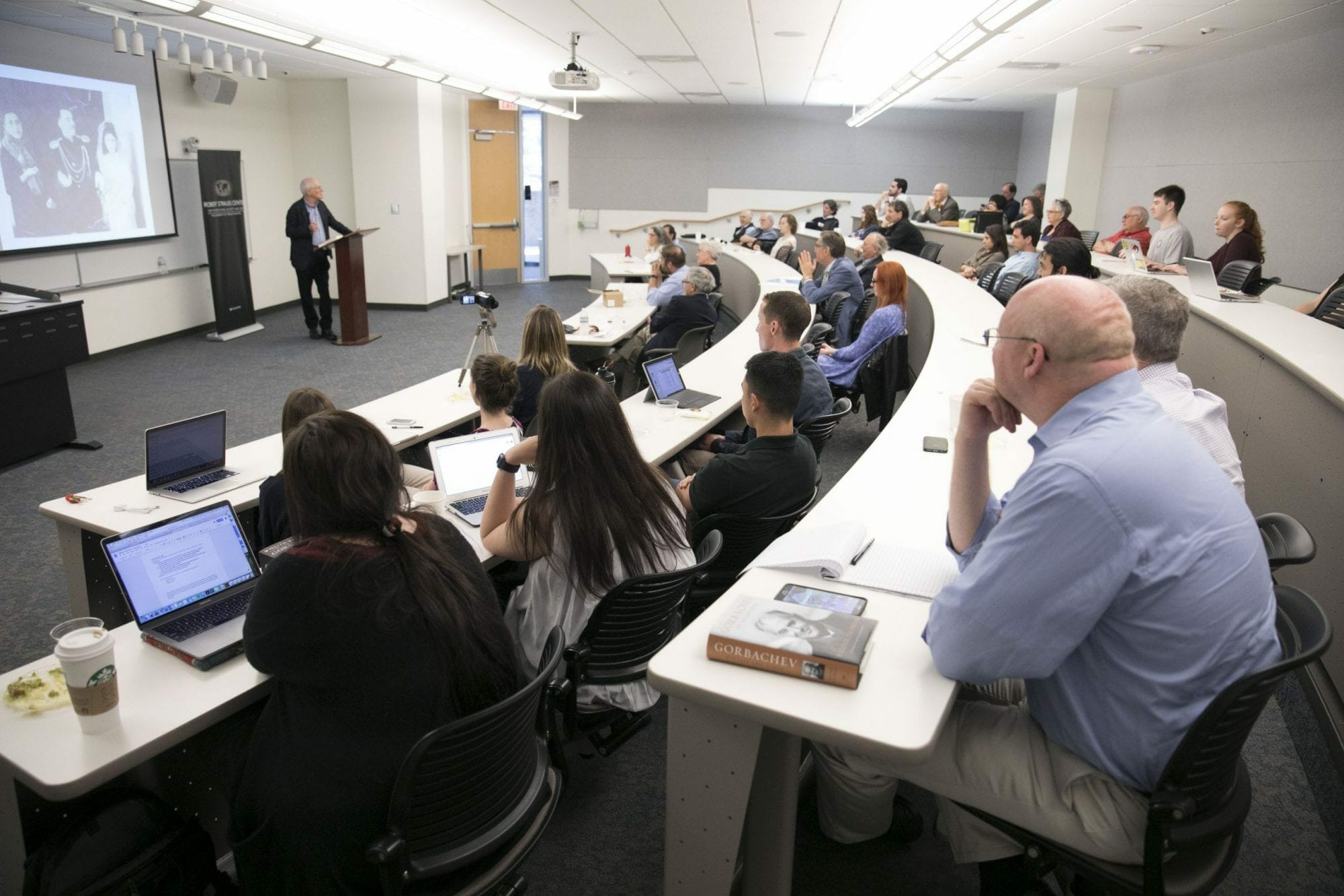
Gorbachev climbed the ladder of the communist party in Stavropol, then Moscow. Dr. Taubman attributes his ascension to his youth and vitality. Gorbachev symbolized a new Soviet Man. He was idealistic, young, and optimistic about revitalizing the country. His ideals diverged greatly from Stalinist interpretations of communism; he was a child of Khrushchev and believed in the Marxist vision of a kind of heaven on earth. Ultimately though, Gorbachev’s idealism led him to be overconfident.
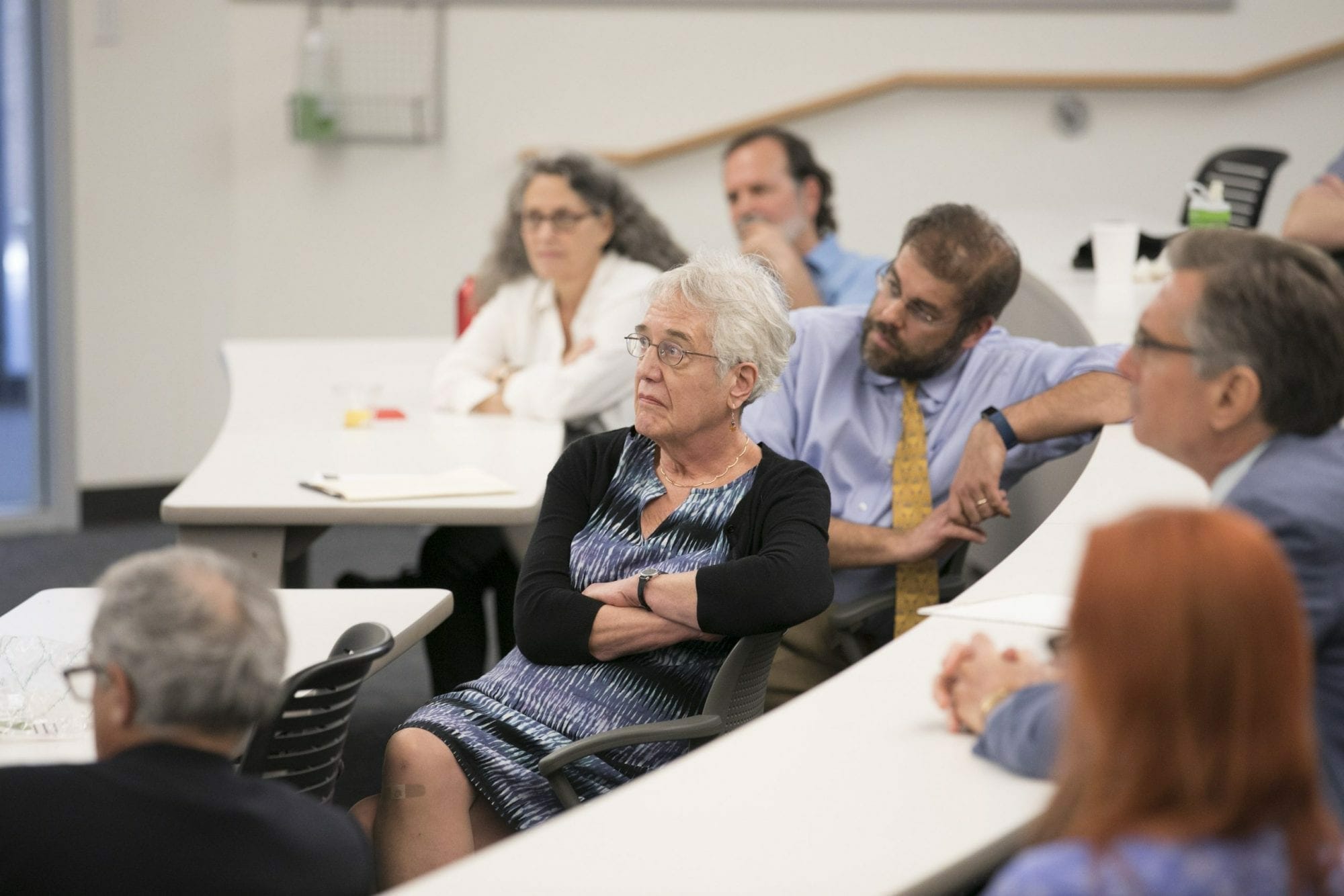
With Reagan as his U.S. counterpart, Gorbachev became the first Soviet leader to consider the U.S. a friend. According to Dr. Taubman, Reagan and Gorbachev were similar in terms of both goals and personality. Reagan and Gorbachev came from humble beginnings and dreamed of a nuclear-free world. Their commonalities led to a kind of chemistry and bond. When H.W. Bush assumed office a frinedly relationship with a U.S. leader deteriorated. Gorbachev’s friendship with the U.S. was met with skepticism by the new administration, and although it subsided eventually, Dr. Taubman believes that skepticism hurt Gorbachev in the long run. Ultimately at the end of the Cold War, Gorbachev praised both Reagan and Bush, but Dr. Taubman maintains that Gorbachev, not Bush or Reagan, played the key, pivotal role in bringing the Cold War to its end.
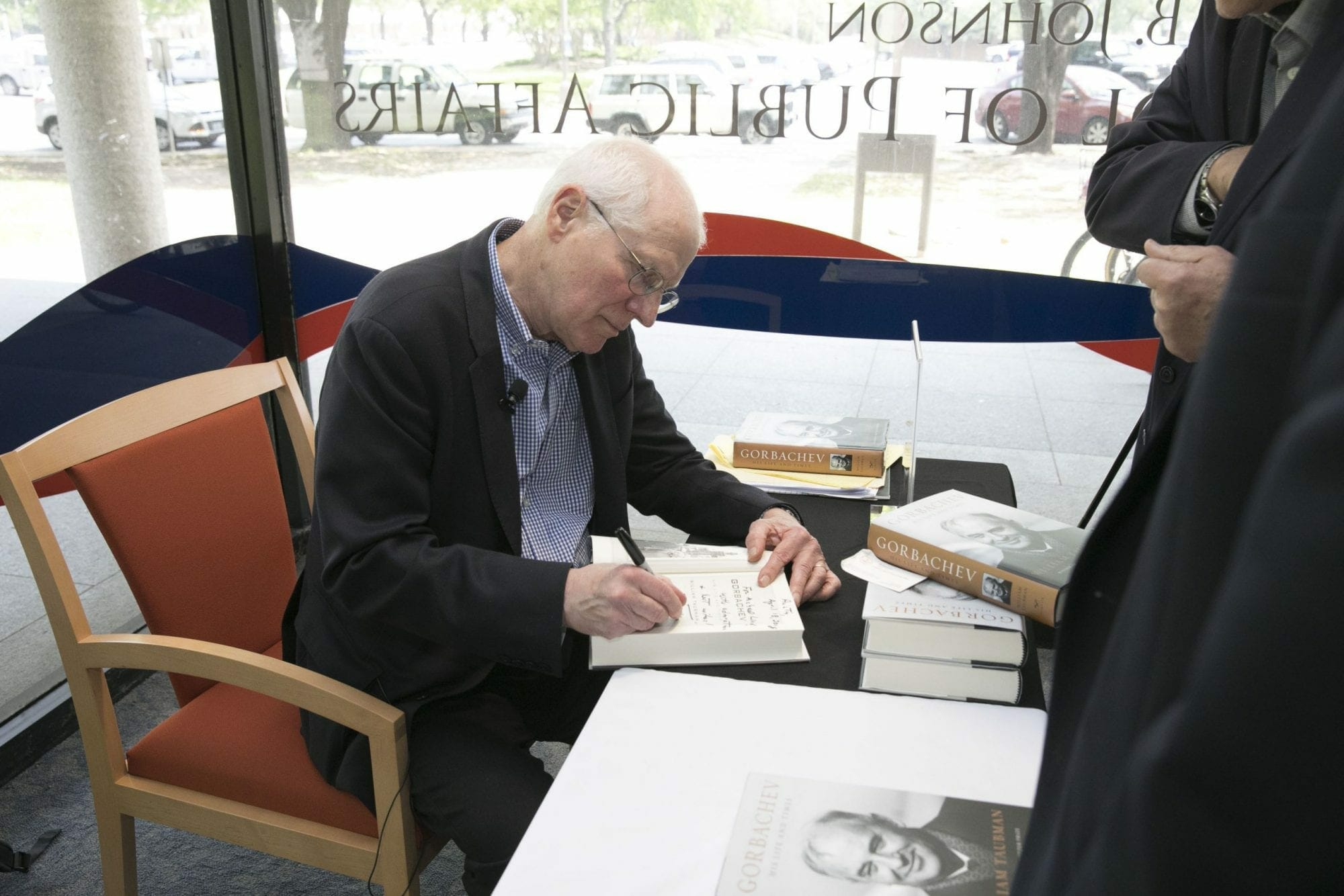
For the duration of his time in office Gorbachev dreamed of East and West Europe transcending the divide; He had a vision of a much better world, indicated by the significance he attached to the fall of the Berlin Wall. He thought he could reign in hardliners, bring democracy to his people, and revitalize the country in the way he had been urged to, but he was overly optimistic and unrealistic. Dr. Taubman finished his analysis by saying I think Gorbachev was a hero, noting that while he is partly to blame for the collapse of the Soviet Union, Gorbachev might well have laid the foundations for the future of democracy in Russia.
William Taubman, the Bertrand Snell Professor of Political Science Emeritus at Amherst College, is the authour of just published Gorbachev: His Life and Times. His biography, Krushchev: The Man and His Era, won the Pulitzer Prize and the National Book Critics Circle Award for biography. Also the author of Stalin’s American Policy: From Entente to Detente to Cold War, and co-author with his wife, retired Amherst College professor of Russian Jane Taubman, of Moscow Spring, William Taubman was president of the American Association for the Advancement of Slavic Studies in 2009 and chairs the Academic Advisory Committee of the Cold War International History Project at the Woodrow Wilson Center in Washington. He has received the Karel Kramar Medal of the Czech Republic and the Order of Friendship of the Russian Federation. He lives in Amherst, Massachusetts.


